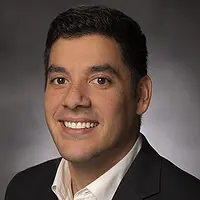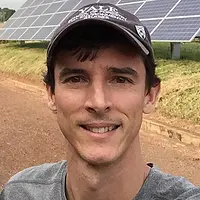RTI at COP27
Date
Accelerating climate action on a global scale is critical to emissions reductions and climate adaptation efforts. RTI is proud to join other scientists, researchers, and world leaders at the 27th Conference of the Parties (COP) of the United Nations Framework Convention on Climate Change to contribute to climate action.
During COP27, RTI is hosting and participating in several side events on nature-based solutions, climate mitigation, locally led solutions, climate finance, climate adaptation, and climate resilience. These side events will bring together scientists, researchers, implementers, and civil society representatives to discuss ways to develop and scale climate smart solutions for a more prosperous, equitable, and resilient world.
Visit us at the Pathways to 1.5 Pavilion, in partnership with The Climate Registry. The pavilion is located in the Blue Zone at COP27.
Thursday, November 10
Devex @ COP27 Event
Visualizing the impact of climate finance
Organizer: Devex
Time: 13:40-14:00
Location: Grand Rotana Resort & Spa, Sharm El Sheikh
As part of the Devex @ COP27 event, RTI’s Director of Private Sector Engagement, Avery Ouellette and Vibrant Data Labs CEO, Eric Berlow will be speaking on “Visualizing the impact of climate change.” There are critical gaps in climate finance, both in the types of climate solutions being funded and who is being reached, which is why RTI has partnered with ImpactAlpha and Vibrant Data Labs to map private climate funding in low- and middle- income countries. This interactive climate finance map is the first publicly available philanthropic and private investment tool to equitably catalyze capital for climate action.
Not at COP27? Register for the livestream, available on November 11th.
RTI-Hosted Side Event
Essential Data for Urban Resilience
Speakers: Jeff Petrusa, Jonathan Richart (MCC), Saber Hossain Chowdhury (Member of Bangladesh Parliament)
Time: 17:00-18:15
Location: Pathways to 1.5 Pavilion
In 2050, 80% of the world’s population will live in cities that will look far different than those of today. That growth represents a 43% increase from current levels. There are a multitude of decisions that need to be made regarding city planning, new and existing infrastructure, and food, health, and energy systems, among others. Do we have the necessary data and tools to plan for the changes needed, and secure financing, knowing these are long-term investments? What evidence and information is needed at the local level to lead the way to green resilient, vibrant cities of the future? Are there special considerations for conflict/post-conflict environments and those focused on disaster relief?
Saturday, November 12
RTI-Hosted Side Event
Understanding Climate Change Impacts on the Social Determinants of Health
Speaker: Robert Beach, Kris Ebi (University of Washington), Kathryn Bowen (University of Melbourne)
Time: 9:00-10:00
Location: Pathways to 1.5 Pavilion
A growing body of work seeks to track the effects of climate change on health. By looking at the effects through impacts on Social Determinants of Health (SDoH)—such as access to healthcare, economic stability, and more—we can better design solutions that reflect both direct and indirect effects of climate change. This side event will focus on identifying and incorporating linkages between climate change and health outcomes in order to improve understanding of areas where climate change may affect progress in reducing the global burden of disease and associated economic burden. We will discuss emerging research and tools that can aid in analyzing these impacts as well as informing strategies for reducing the risk of growing disparities due to climate change.
USAID Side Event
How is USAID mitigating methane emissions as a co-benefit of solid waste management, sanitation, and dairy productivity programs in developing countries?
Speakers: Tracy Mitchell, Malick Haidara (USAID), Andrew Foote (Sanivation), Jon Angin (Tetra Tech), Lindsay Foley (Abt Associates)
Time: 14:00-15:00
Location: Pathways to 1.5 Pavilion
The United States launched the Global Methane Pledge during COP26. In support of the United States Government’s effort to continue highlighting the importance of methane mitigation in keeping the 1.5-degree warmer future during COP27, USAID will showcase the methane mitigation support it has provided to partner countries during the past year. The panel discussion will bring together implementing partners of USAID programs in Kenya and the Dominican Republic who will discuss how their respective programs contribute to reducing methane emissions. The audience will learn about USAID’s commitment to methane mitigation, and methane mitigation co-benefits including improving public health and agricultural productivity.
Register to watch this event: https://attendee.gotowebinar.com/register/4131011847482699024
Official United Nations COP27 Side Event
Minimizing Unintended Consequences (UIC) of mitigation and adaptation policies
Organizers: RTI International, Sudanese Environment Conservation Society, Virginia Tech, RAED
Time: 18:30-20:00
Join us for a pre-event reception at 17:30.
Location: Thebes (200)
Achieving the targets of the Paris Agreement requires taking transformative actions to align with net zero pathways. As pathways change, well-intentioned mitigation and adaptation outcomes may have negative side effects on local circumstances. How best can we apply global policies to local conditions? What frameworks are available for us to use? What evidence is needed to prioritize sustainable solutions? Presenters from RTI International, the Sudanese Environment Conservation Society, Virginia Tech University, and the Arab Network for Environment and Development will provide their perspectives.
Monday, November 14
RTI-Hosted Side Event
Leveraging Market Systems to Spur Climate Adaptation
Speaker: Tracy Mitchell
Time: 16:00-17:15
Location: Pathways to 1.5 Pavilion
Resilient market systems enable communities to absorb climate shocks, proactively adapt to the changing climate, and transform to improve human wellbeing. USAID's Market System Resilience framework can help practitioners identify market opportunities that spur equitable and transformative climate adaptation. This session will provide an overview of the USAID Market System Resilience framework and provide case studies of how market systems have been harnessed for climate adaptation.
Tuesday, November 15
RTI-Hosted Side Event
How Do We Achieve a Just Energy Transition in a Decarbonizing Economy?
Speakers: Candise Henry, Justin Larson, Malick Haidara (USAID), Faten Aggad (Africa Climate Foundation), Pradeep Tharakan (Asian Development Bank)
Time: 17:00-18:15
Location: Pathways to 1.5 Pavilion
As energy sectors around the world transition towards decarbonization, there will continue to be impacts on local communities in terms of access, affordability and costs, jobs created and lost, environmental and health, and more. The energy transition will require careful planning around these communities to ensure the transition is just and equitable. In this session, we bring together thought leadership across different stakeholder groups to discuss what a just energy transition looks like, what barriers there are to success, and how we can overcome these barriers.
Wednesday, November 16
RTI-Hosted Side Event
Evidence-Based Approaches to Biodiversity Conservation
Speakers: Jonathan Schwarz, Robert Beach, Tanya Trujilo (U.S. Department of the Interior), Dr. Jeff Milder (Rainforest Alliance), Ray Thomas Kabigting (Philippine Government)
Time: 13:00-14:30
Location: Pathways to 1.5 Pavilion
The impacts of climate change pose a significant challenge to conserving the planet’s ecosystems and biodiversity, with species being affected at an accelerating rate due to the effects of shifting climate patterns. Fortunately, new approaches with climate science and data can help us more accurately monitor potential and actual changes to land and ecosystems, and help us to better respond to drivers of habitat loss. How are these approaches currently being applied in various contexts, accounting for local conditions? How can these tools be best used/scaled up for greater impact?
Check back as more side events will be added soon. Learn more about RTI’s Center for Climate Solutions.











